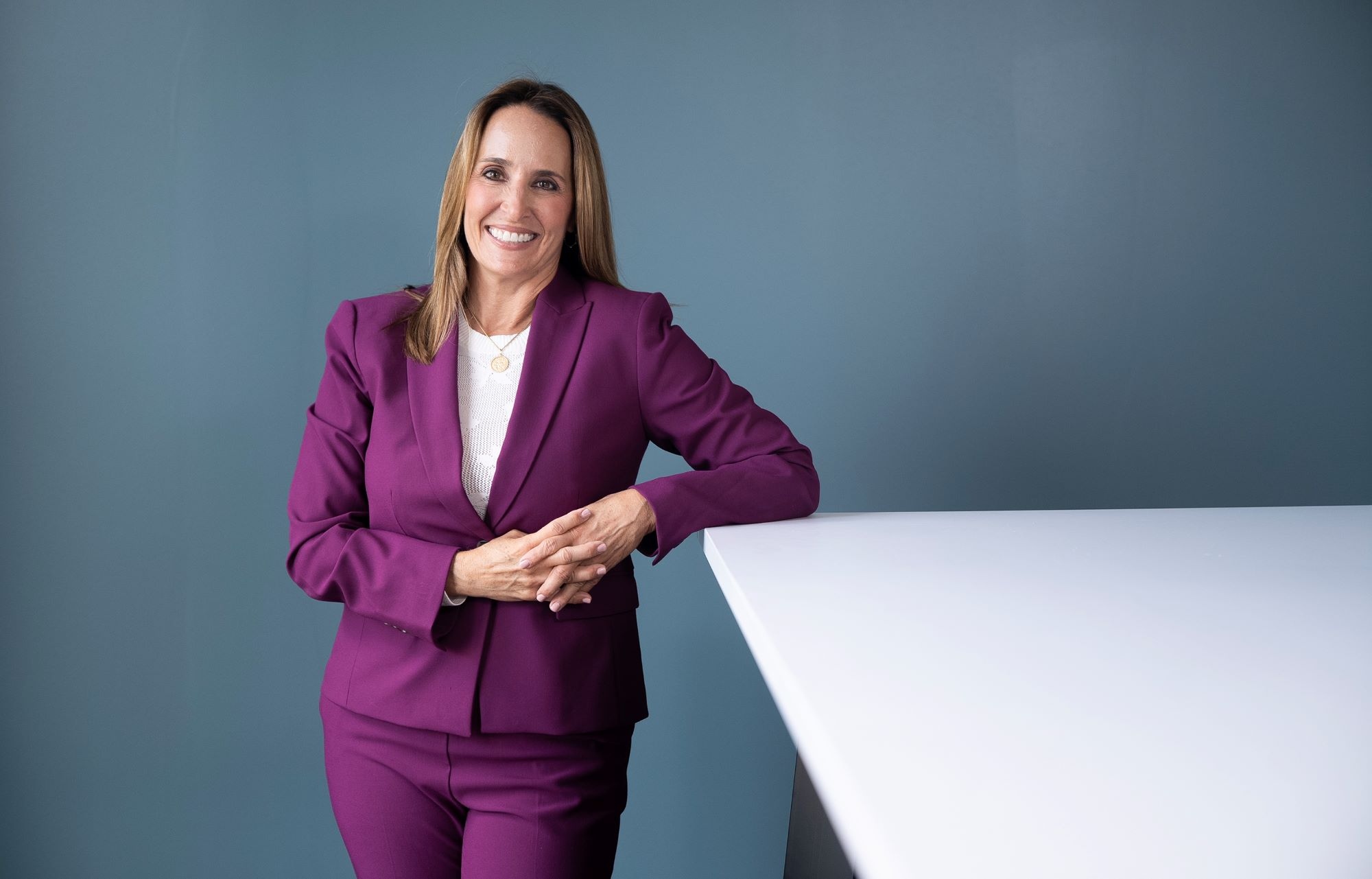A class at Denison helped nudge Ilaria Rawlins ’92 toward a new career path. Decades later, she’s CEO of one of the few women-owned banks in the country.
Rawlins leads the soon-to-open Fortuna Bank, based in Grandview Heights, Ohio, a suburb on the west side of Columbus. The bank boasts more than 65% female ownership, and part of its mission is to provide better support, education, and mentoring for women entrepreneurs.
When Rawlins was young, she dreamed of being a TV anchor like Jane Pauley. When she came to Denison, she started out as a communication major. But after a junior year economics class piqued her interest in business, Rawlins ended up working in banking after graduation.
Some of her experience included working with a startup bank, and when she was approached about the CEO role, she thought, “This is exactly what I’d love to do. I’d love to get back into a small community bank where we have the time and capacity to build relationships.”
Lisa Berger, who tapped Rawlins for the position, came from a career in commercial real estate law and had also founded a title company. A few years ago, she began researching bank ownership statistics.
“I found the numbers absolutely startling,” she says. Berger discovered that out of nearly 4,800 banks in the United States, fewer than 20 were owned by women, and she was only able to find two intentionally founded by women.
Rawlins and other Fortuna organizers say women in business often don’t have the personal connections in banking that men do, so they may not get personalized attention when they apply for loans — and they get turned down more often.
This, despite research findings that women are starting businesses at twice the rate of men.
In addition to having fewer connections in banking, women also may be more hesitant about taking risks.
“Women just aren’t presented with investment opportunities the way men are,” Berger says. “They don’t make those investment decisions, so they’re just unsure. They’re nervous to do it.”
Fortuna board member Lori Kaiser has been a business owner for more than 30 years and is well acquainted with some of the challenges women can face.
“I went in to get loans,” she says, recalling a memory from the early ’90s, “and was told to bring my husband along.” Even when she pointed out that her husband wouldn’t be involved in the business, bankers often asked for him to be present.
While many women are starting businesses, Kaiser points out that these enterprises are often small — basically self-employment situations. A bank like Fortuna could take these businesses to the next level, fueling growth in local communities.
The founders emphasize that they want Fortuna to be a community bank for everyone, but with a role addressing the gap in support for women.
Women are often passionate about their products and services but sometimes lack experience and knowledge of elements such as compliance, taxes, and hiring, Kaiser says. “We want more women to make the leap to growing and scaling and to creating real wealth.”
It initially appeared that fortune might not be on Fortuna’s side. Weeks after they submitted their business plan to federal regulators, Silicon Valley Bank failed, sending shockwaves through the industry. At the time, business leaders and government officials were nervously remembering the 2008 economic crisis and worrying about domino effects.
Fortuna did end up getting approval but was required to raise at least $20 million to get started. Finding that capital with a majority of women investors was not easy. Rawlins calls it “probably the hardest professional time in my life.”
“We talked to anybody who wanted to hear anything about it,” Berger says. “Ilaria and I probably gave 1,000 speeches.”
To bring more people in, they lowered the minimum investment to $10,000, well below typical levels. Fortuna now has nearly 350 investors, ranging from those small entry-level stakes to $1-2 million shares. That larger base of investors provides a referral network of brand ambassadors who have a vested interest in the bank’s success, Rawlins notes.
Personal networks, including Denison connections, were big in rounding up support.
“I’m not a Denison grad, but I have met a lot along the way — and wow, are they a tight-knit community,” Berger says.
By the end of 2024, it all finally came together — final touches on hiring, construction, setting up the vault, and bringing in furniture. Fortuna was scheduled to open its doors in December, with a grand opening planned for January 2025.
It’s not where Rawlins thought she would be when she started her communication major, but she’s found satisfaction in her career. “I fell in love with banking,” she says, “and the ability to build relationships with people at pretty monumental times in their lives.”


